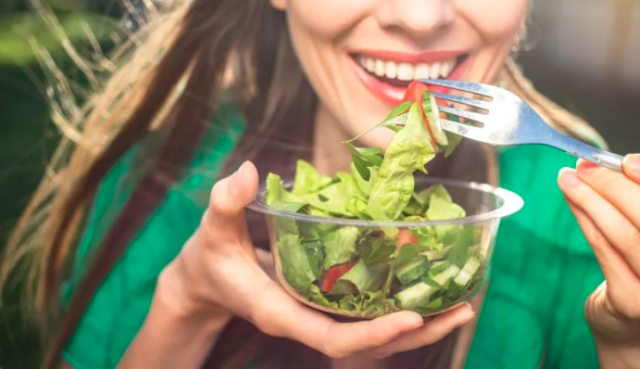How to help the body in the heat and what to do in the scorching sun

Information about the intense heat and scorching sun delights sunbathers and upsets those with health problems. But you need to be careful with both categories of people: because of the high temperature, the heartbeat increases, the pressure rises, the blood thickens, the body dehydrates. This can provoke heatstroke, blood clots, even in people with iron health.
We will tell you how to prepare when the thermometer needle is approaching 30 degrees.
Avoid the baking
The vessels are influenced by many natural factors, even when this does not affect well-being: from an unstable geomagnetic background to an elevated temperature. Be as careful as possible if you were really expecting the heat and want to sunbathe or go for a walk. A beautiful skin tone is not a health problem. It is undesirable to be in the sun from 12 to 16 hours: this applies to both beaches and walks in the city. Keep it as cool as possible.
On the street, stand in the shade, go under the roof of the bus stop, periodically go to shops and pharmacies, which cool down under the air conditioner.
Switch to a light diet
The heavy loads that the body experiences are aggravated by increased digestion: this can lead to a breakdown and malaise.
Help the body: cut down on heavy, unhealthy, smoked, spicy foods. Let the diet consist of cold soups, herbs, salads, lean fish and poultry, fruits, berries, and vegetables. Protein-rich foods satisfy hunger for a long time and prevent overeating.
In small quantities, the use of salty foods is allowed: salt retains water, which becomes the prevention of dehydration.
Dress freely
In summer, especially in hot weather, it is better not to wear tight, leather, uncomfortable things. Choose breathable clothing made from natural fabrics, linen and cotton. Such things can absorb moisture and allow air to pass through. It is advisable to wear a hat.
Pay attention to your legs and feet: on hot days they swell and swell, there is a feeling of heaviness. Choose shoes that don’t press, squeeze, or have straps that don’t overtighten your foot. At the end of the day, take a relaxing soak: dip your feet in sea salt and mint water.
Take a cold shower
If you are at home, take a cool bath and lie down for a few minutes. Use a peppermint gel or soap to help you feel a slight cooling effect for a few minutes after you shower.
When outside the home, cool your pulse points: wrists, neck, inner elbows, popliteal arteries, and others. Try to wash your face often with cool water.
Ventilate the room
Open windows when the outside air is cooler than indoors, for example at night. Otherwise, it makes no sense to drive dry air around the apartment.
Use a humidifier, place a damp, cool towel on top of the battery, or spray water with a spray bottle. This will help cool the air and make it less dry.
Drink plenty of water
Help your kidneys stay hydrated. There is a lot of controversies about which water to drink: hot or cold. From a scientific point of view, hot beverages quickly cool the body, as they increased sweating. But with high humidity, there will be almost no benefit from hot drinks. Also, do not lean on ice water, so as not to harm the oropharynx and not get sick.
It is important to drink pure non-carbonated water; a liquid that contains electrolytes, vitamins and minerals will be an excellent option. If you are not used to drinking a lot of water, add slices of lemon, orange, berries, mint, cucumber slices to it.
Drink water not only in the heat but also at home or office: air conditioners and fans accelerate dehydration. Try to reduce the amount of coffee, alcohol, soda, lemonade: drinking negatively affects the heart and blood vessels, especially in hot weather.
Additionally
- use sunscreen with SPF 50;
- wear sunglasses;
- take a fan or portable hand fan;
- Carry ammonia wipes, mints, or hard candy with you.
How to recognize heatstroke
Strong overheating of the body occurs when the body does not cool down for a long time and does not restore its normal temperature:
- many get mild heatstroke and don’t even know it. This happens when, after a long stay in strong sun, you feel weak, lethargic, drowsy. You need to wash with cool water or take a shower and rest;
- confusion, slurred speech, irritability;
- heavy sweating;
- nausea and vomiting;
- redness of the skin;
- dizziness and lightheadedness (ringing in the ears, flies before the eyes, cotton feet);
- rapid breathing and heart rate;
- increased body temperature: up to 40 degrees;
- throbbing headache;
- intense thirst;
- the pallor of the face, convulsions, shortness of breath.
If it gets worse in the heat
If dizziness, nausea, severe fatigue, and rapid heart rate appear after exposure to the sun:
- leave the sun at once. If you are not near your home or office, go into any cool room, sit down, ask for water. Don’t be shy: think about health and wellness. It is better to ask strangers for help than to faint;
- take off excess clothes, unbutton the collar;
- wipe the whiskey with ammonia, wave it in front of your nose;
- lie down at home and cover your head with a damp cool towel;
- if you feel unwell, call an ambulance immediately. If it’s hard to stand, lie on your side with your legs slightly raised;
- To restore the water-salt balance, dilute a teaspoon of salt per liter of water.